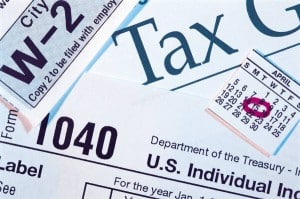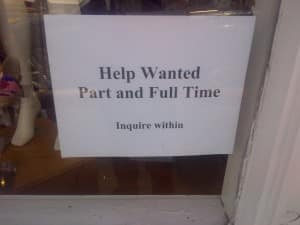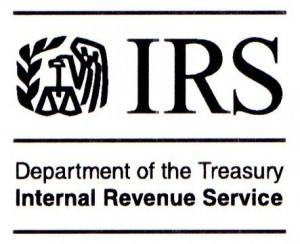>September 21, 2008
Your Pocketbook: The New Bank of America? Op-Ed By Scott Garrett (NJ Herald)
As the Wall Street drama of the past several weeks has unfolded, I have become increasingly worried about the consequences of our government’s actions on American families. Treasury Secretary Henry Paulson throws a lifeline to company after company, all the while Americans, New Jerseyans in particular, struggle to make ends meet. While New Jersey families struggle to balance their household budgets and high gas and heating oil prices, Wall Street companies aren’t held to the same standards of accountability. If any resident of the Fifth District stopped paying his or her mortgage, the bank would come take their house. Bear Stearns wasn’t even worth the building in which they were located, and yet the government gave them a loan! Somehow, I fail to see the logic in this situation.
Bear Stearns was “too big to fail.” Reported as a historic bailout, the taxpayers were put on the hook for $30 billion in the name of preventing disaster. That Sunday morning in March, Paulson stated that the intervention of the Federal Reserve “was not a difficult decision. It was the right decision.”
Enter Fannie Mae and Freddie Mac, our two enormous housing finance agencies. Too big to fail. Historic bailout. A weekend decision made with little or no congressional oversight. Taxpayers placed at risk. Again.
Now with AIG, Congress is whipped into a frenzy, acting with shock and dismay at the actions of Treasury and the Fed. Well, fool me once, shame on you. Fool me three times? I don’t think Congress gets to play that game. It’s a little too late to be flabbergasted, as the American taxpayer is being hung out to dry to the tune of hundreds of billions of dollars.
In March, when the Bear Stearns bailout occurred, I spoke out against setting a dangerous precedent of bailing out private sector companies. As a Member of the Financial Services Committee, I demanded hearings on the litmus test Federal Reserve Chairman Bernanke and Paulson used to make their decision. The Chairman of the Financial Services Committee, Barney Frank (D-MA), failed to hold a hearing for more than two months.
Finally, when this hearing did occur, I asked Bernanke and Secretary Paulson, “Can you assure us that you will not conduct any similar Bear Stearns transaction if another investment bank or a GSE gets in trouble?”
Bernanke replied, “I don’t think a situation like this is at all likely.”
That prediction lasted only days until Fannie and Freddie were propped up by our government, again exposing taxpayers to untold amounts of risk.
As Lehman Brothers faltered last weekend, all eyes were on Paulson to see what he would do. In a high-stakes game of chicken, potential buyers of the flailing company waited on the so-called White Knight of Corporate America to come to the rescue; Paulson stood fast in the face of criticism, while Lehman filed for bankruptcy. Then, just twenty four hours later, he and Bernanke were writing insurance giant AIG an $85 billion check – from the bank account of the American people. Well what happens when the Federal Reserve no longer has any reserves?
Rather than letting the marketplace resolve these crises, Paulson has become the Officer Krupke of Wall Street, attempting to quiet down the neighborhood. In reality, Paulson hasn’t been deputized and Wall Street and Congress aren’t the Sharks and the Jets. Government intervention in the marketplace may only prolong our current economic crisis, providing false security for businesses which aren’t stable enough to perform on their own. Rather than allowing the market to regain its balance through natural contractions and corrections, government intervention fails to address the problems behind any crisis. Paulson has publicly expressed his sympathy for the senior executives and boards of Fannie and Freddie, saying he felt “sorry” for them. We have yet to hear him say “sorry” to the American taxpayer.
I am ready for more than a simple apology, however. I want answers. This week, I introduced a bipartisan bill to establish the Select Committee on Bailouts in the House of Representatives. Taxpayer risk should not be a partisan issue, so I was pleased to have Congresswoman Marcy Kaptur, a Democrat from Ohio join me in introducing this legislation. This Select Committee will be tasked with finding out what exactly happened in the conference rooms at the Treasury and the Federal Reserve this year. After all, when the American taxpayer is footing the bill—we deserve to have all of the facts.
I am also continuing my work to reform the Government Sponsored Enterprises (GSEs), Fannie Mae and Freddie Mac. Going forward, we must implement major changes to limit the size and scope of the GSEs and ensure that free markets are given the opportunity to work on behalf of all Americans. Congress needs to recognize its role as the watchdog and protector of the American taxpayer. This does not include policing the Street or offering up taxpayer dollars when things start to look rocky.
There is evidence to suggest that the conservatorship in which the Treasury has proposed for the GSEs will result in the revitalization of the failed business model currently in place for Fannie and Freddie. This only serves to promote ongoing troubles stemming from a poorly structured business model, the flaws of which have been openly acknowledged by Paulson and others. The GSEs should be put into receivership, unwound and broken into smaller entities, and then privatized, severing the link between the Federal government and these institutions. Historically, the backing which the government provided for Fannie and Freddie has protected investors at the expense of taxpayers, creating socialized losses and private profits.
The exponential growth of our housing markets is the root cause of the economic downturn. Under the current mortgage system, lenders had incentives to pass questionable loans through the two GSEs, Fannie Mae and Freddie Mac, onto unwitting investors on Wall Street. Once these loans turned sour, mortgage availability dried up. To begin addressing this liquidity crisis, I introduced legislation to encourage the development of a newer and safer tool called “covered bonds.” Covered bonds are financial instruments which include incentives to prevent un-creditworthy borrowers from receiving loans and instead encourage lending to people who deserve the extension of credit. My legislation, “The Equal Treatment for Covered Bonds Act,” provides more legal certainty to help get the covered bond market off the ground.
I will continue to work as a vocal advocate for taxpayer concerns as the United States works through this difficult economic period. If we continue to rely on the “too big to fail” logic, I fear that in the future, Wall Street CEOs will first look to the American taxpayer to solve their problems, rather than to the private marketplace. The total cost and risk to American families caused by the government’s recent actions has yet to be determined, but the preliminary math is rather daunting. Bear Stearns: $30 billion. Fannie and Freddie: $200 billion. AIG: $85 billion. Mortgaging your future? Priceless.
https://www.govtrack.us/congress/person.xpd?id=400145













